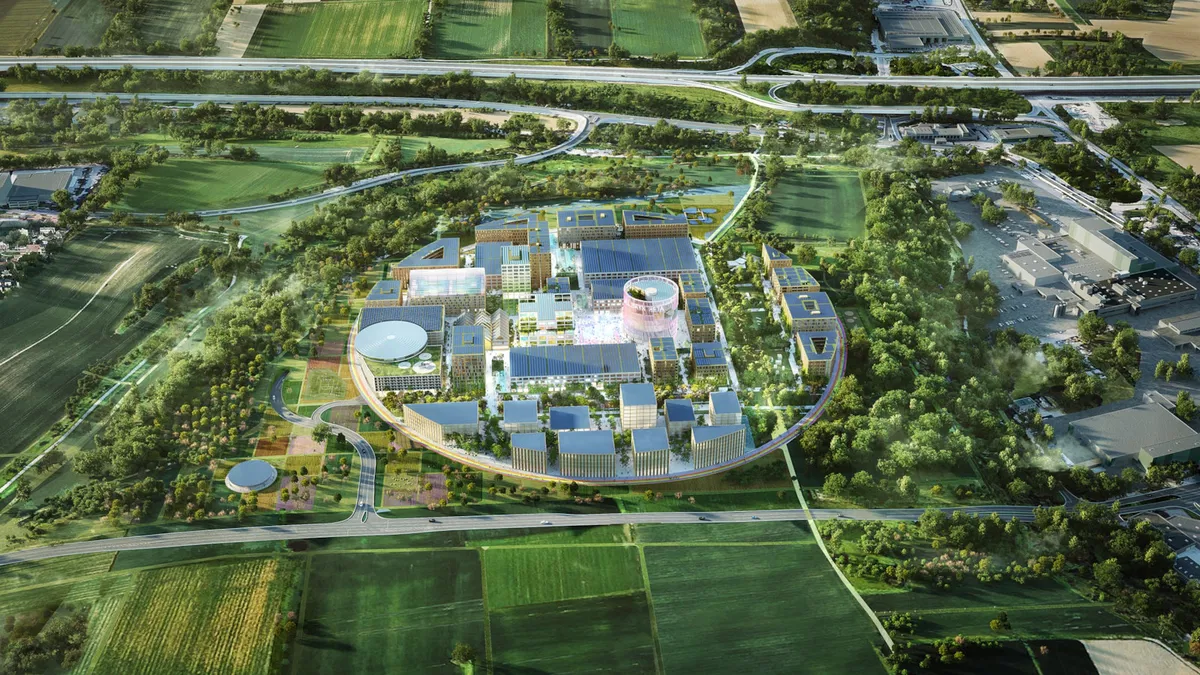Copyright Fast Company

Why are some jobs better than others? Well, it largely depends on people’s preferences. In other words, one person’s dream job may be another person’s nightmare. And yet, there are also clearly some universal or at least generalizable parameters that make most people accept the idea that some jobs are objectively better than others — or at least seen by most as generally preferable. Get more insights from Tomas Chamorro-Premuzic Dr. Tomas Chamorro-Premuzic is a professor of organizational psychology at UCL and Columbia University, and the co-founder of DeeperSignals. He has authored 15 books and over 250 scientific articles on the psychology of talent, leadership, AI, and entrepreneurship. Learn More Pay and purpose For example, jobs that pay well, offer stability, and provide opportunities for growth are almost universally considered better. A tenured professorship, a senior engineering role at a reputable company, or a stable medical position all combine financial security with long-term prospects and prestige. In contrast, poorly paid, insecure, or dead-end roles (like gig work with no benefits or exploitative manual labor with long brutal shifts and an alienating experience) are widely viewed as worse, even if a few individuals might value their flexibility or simplicity. Subscribe to the Daily newsletter.Fast Company's trending stories delivered to you every day Privacy Policy | Fast Company Newsletters Then there’s autonomy. Jobs that grant people a degree of control over how and when they work (e.g., creative professionals, entrepreneurs, and researchers) tend to score higher on satisfaction than those defined by micromanagement or rigid supervision. Autonomy is a proxy for trust and respect, and it correlates strongly with both engagement and mental health. Few people dream of jobs where every move is monitored, and most aspire to roles where they can think, decide, and act freely. Unsurprisingly, purpose matters, too. Occupations that contribute to something meaningful (whether saving lives, advancing knowledge, or building something lasting) are viewed as more fulfilling than those that feel transactional or pointless. A teacher inspiring students, a scientist developing a vaccine, or an architect designing a community space are all examples of work that confers a sense of legacy. By contrast, even lucrative jobs can feel hollow when they lack purpose or moral value. This may explain the low correlation between pay and job satisfaction, which highlights the fact that we tend to overestimate the importance of compensation when making career choices. In that sense, the “best” jobs aren’t just about rewards, but about how they make people feel about themselves and their place in the world. What the science says A good way to acknowledge these nuances, and yet still predict whether a person is likely to access better jobs, is to examine why some individuals have more choices than others. That is, in any job or labor market, available job or career opportunities may have different degrees of appeal or attractiveness; but from a job-seekers perspective, the more employable you are, the more likely to are to find and maintain a desirable job – whether we look at subjective or objective dimensions of desirability. With this in mind, here are some critical learnings about the science of employability that explain why certain people are better able to access in-demand jobs: (1) Their personalityResearch has consistently shown that employability is largely a function of personality. Traits such as conscientiousness, emotional stability, curiosity, and sociability predict not only who gets hired, but also who thrives once employed. Personality shapes reputation (the way others see us) and reputation determines whether we are trusted, promoted, and retained. For instance, people who are reliable, calm under pressure, and open to learning tend to be more employable than those who are erratic, avoid feedback, or difficult to work with. Moreover, personality also predicts job satisfaction: even in objectively good jobs, neurotic or disagreeable people are less likely to feel content, whereas optimistic and adaptable individuals find meaning in a wider range of roles, and are resilient if not satisfied even with jobs that make most people miserable. In short, who you are determines both the jobs you can get and how you feel about them once you do. (2) Their social class While most advanced economies like to think of themselves as meritocracies, the data on social mobility suggest otherwise. In the United States, only about half of children born to parents in the bottom income quintile will ever move up the ladder, and just 7% will reach the top quintile. In the UK, the “class pay gap” between working-class and professional backgrounds persists even among graduates. Privilege still buys access to education, networks, internships, and employers willing to take a chance. Sociologists call this social capital; in plain terms, it means your parents’ contacts and credentials still matter more than your own potential. The world may be trending toward meritocracy, but it hasn’t quite arrived there yet. (3) Where you are born Location remains one of the most powerful predictors of career outcomes. The “Where-to-Be-Born Index” ranks countries by the opportunities they afford their citizens, and being born in Switzerland, Denmark, or Singapore gives you exponentially better odds of landing a good job than being born in Haiti, South Sudan, or Bhutan. Access to education, infrastructure, technology, and basic security all shape employability. The same talent, if born in a country with weak institutions or unstable governance, is far less likely to achieve its potential. In that sense, geography is more likely than talent to mean destiny, at least until global mobility or remote work meaningfully narrow the gap. advertisement (4) Their values, interests, and preferences Even within similar contexts, people differ in what they want from work. Psychologists like Shalom Schwartz and Robert Hogan have shown that our motivational values (e.g., achievement, power, altruism, security, stimulation, and so forth) determine what “fit” looks like for us. Someone who values adventure and creativity will flourish in start-ups or design roles, while a person who craves structure and predictability may prefer government or finance. Misalignment between values and job environment (say, a highly independent person in a bureaucratic culture) leads to burnout or disengagement. The better your job matches your values, the more likely you are to perceive it as a good one. Adapt, evolve, and improve In the end, “better jobs” are not just better paid or better designed; they’re better matched to the people who hold them. Some of this is luck: being born in the right family, in the right country, with the right temperament, will simply afford you a higher range and choice of matches, so you are bound to find more options. But much of it also depends on deliberate self-awareness, namely understanding what kind of environments bring out the best in you, and aligning your career moves accordingly. From a societal perspective, the goal should be to expand access to good jobs by improving education, reducing inequality, and helping people develop the skills and traits that make them employable. That means focusing less on pedigree and more on potential, less on connections and more on competence. Ultimately, the world of work will never be perfectly fair, but it can be fairer. And while none of us can control where we start, we can control how we grow. The most employable people are not just those who fit the system, but those who learn to adapt, evolve, and turn whatever job they have into something better. Get more insights from Tomas Chamorro-Premuzic Dr. Tomas Chamorro-Premuzic is a professor of organizational psychology at UCL and Columbia University, and the co-founder of DeeperSignals. He has authored 15 books and over 250 scientific articles on the psychology of talent, leadership, AI, and entrepreneurship. Learn More



